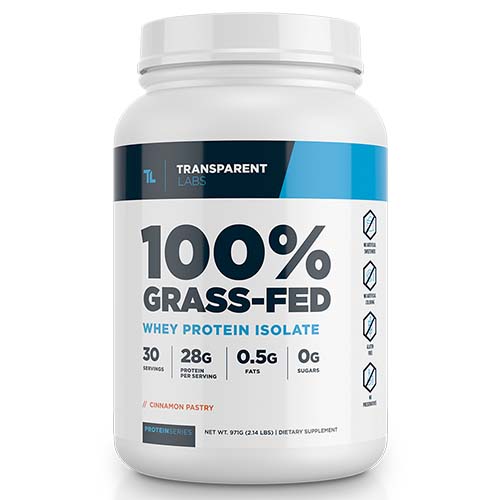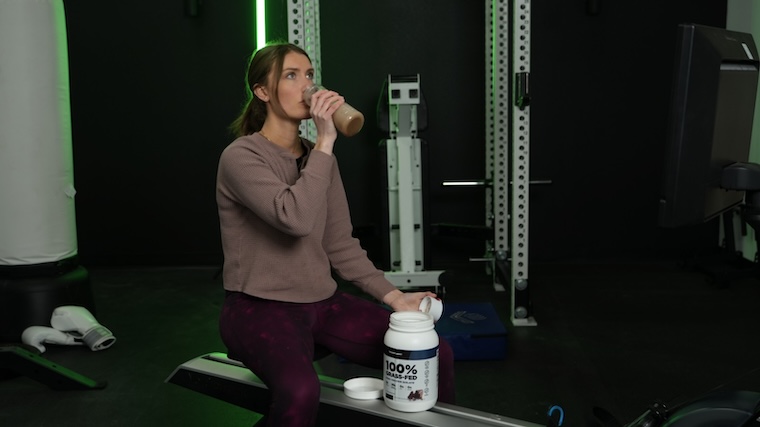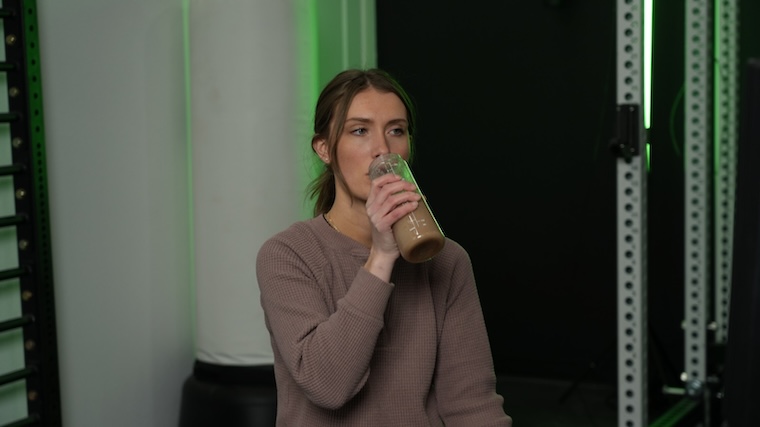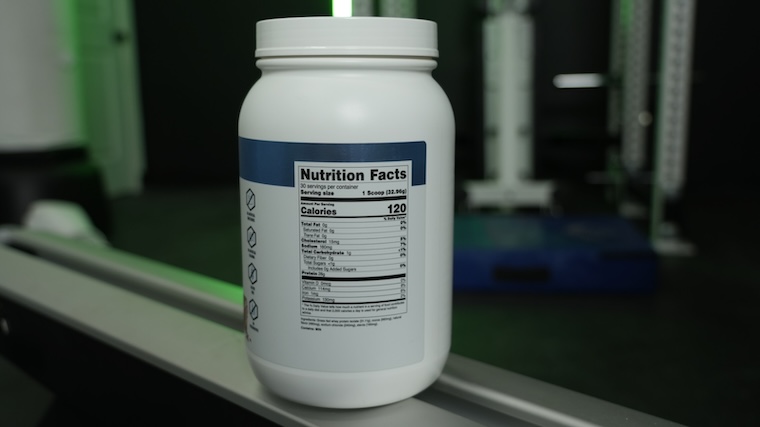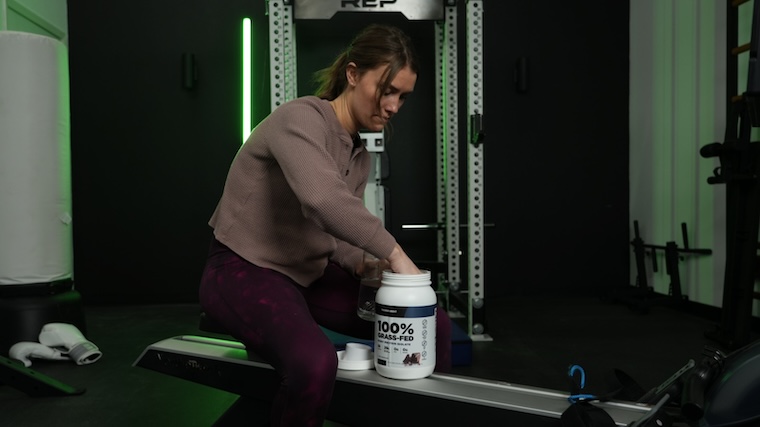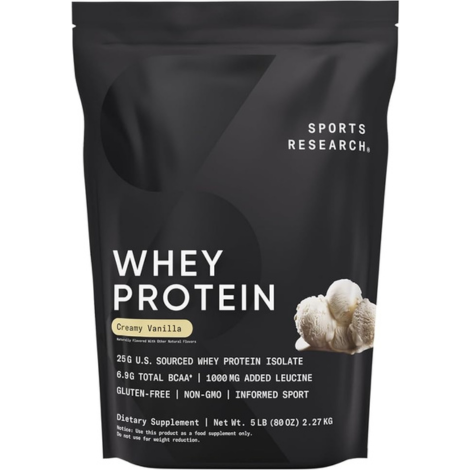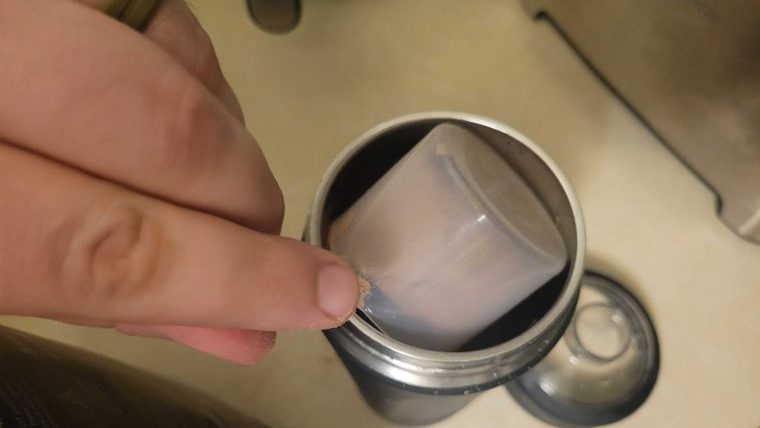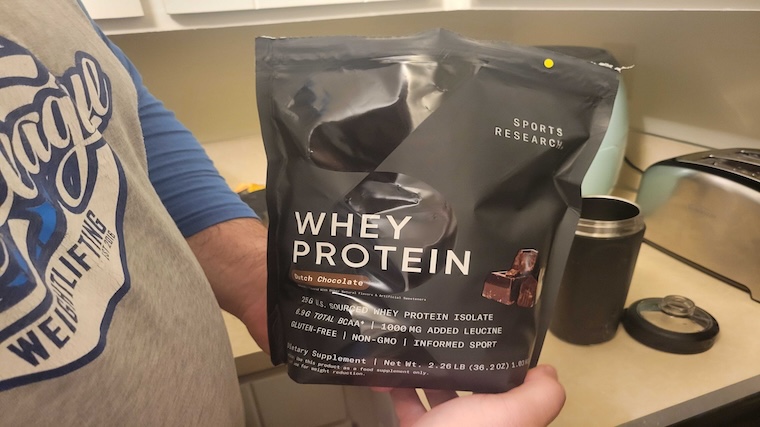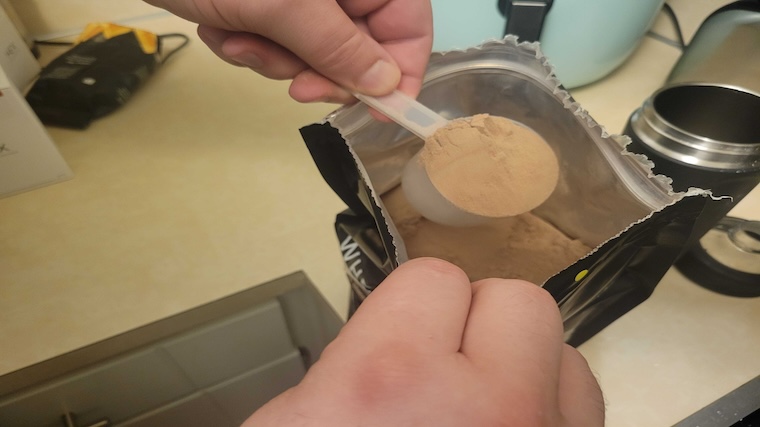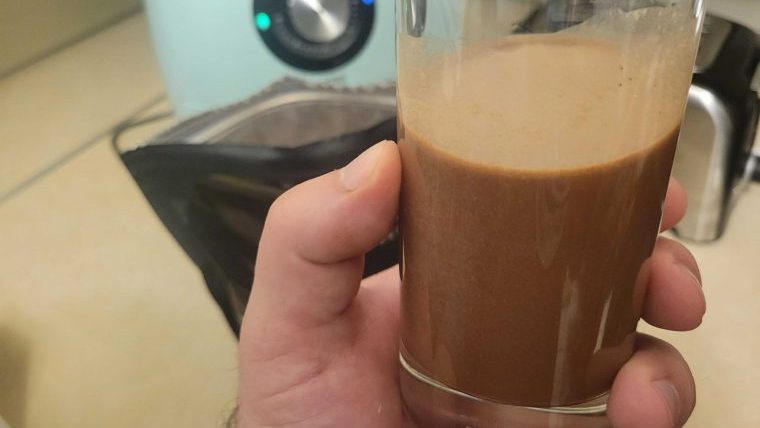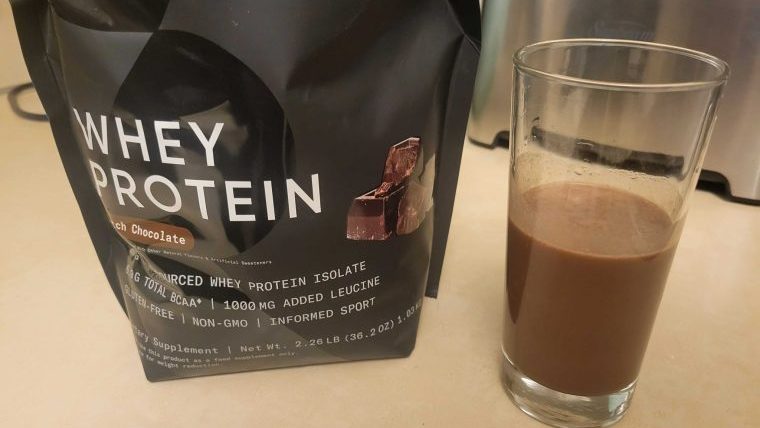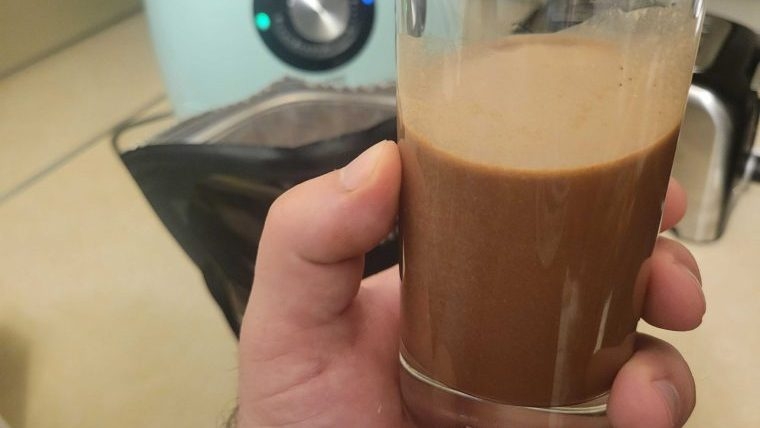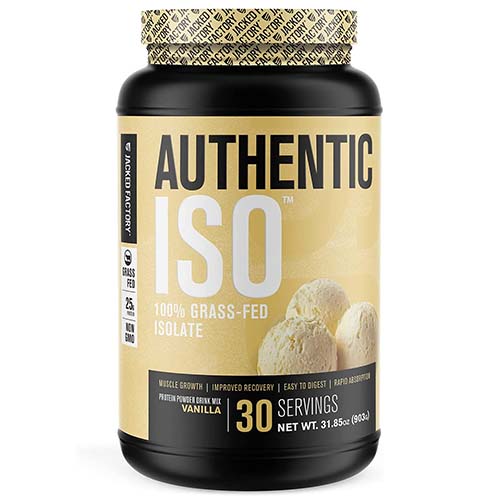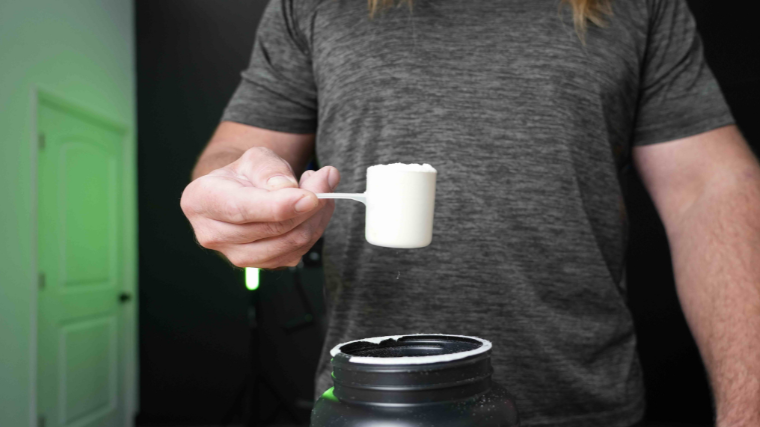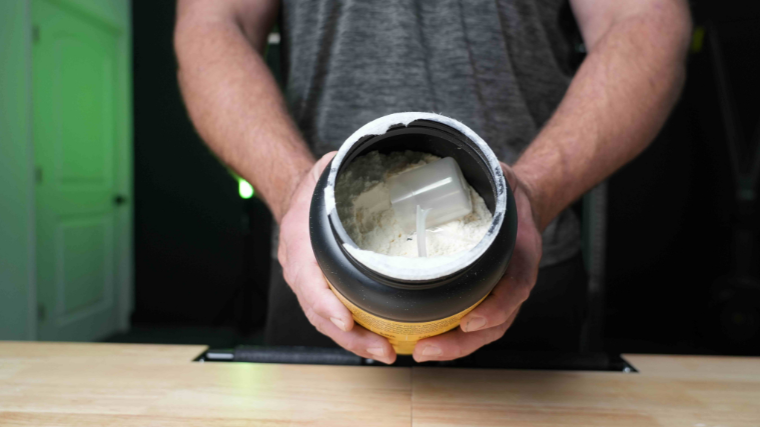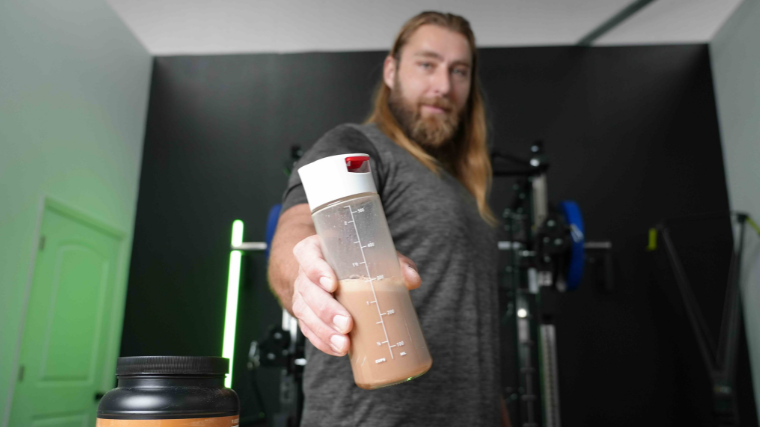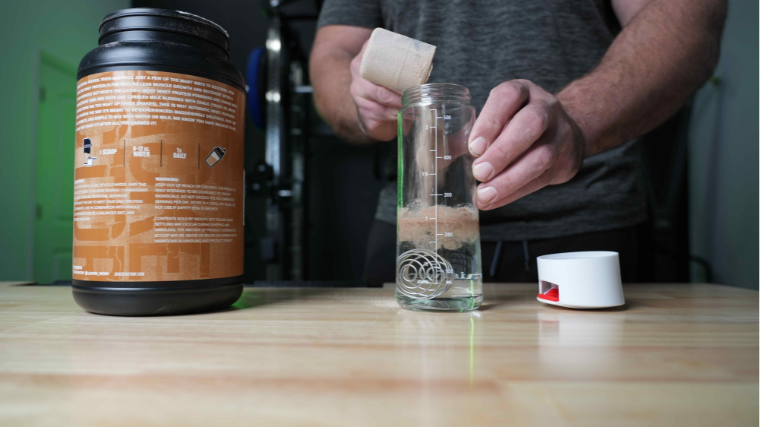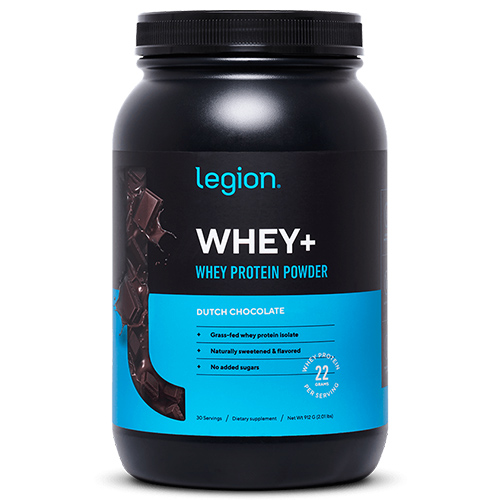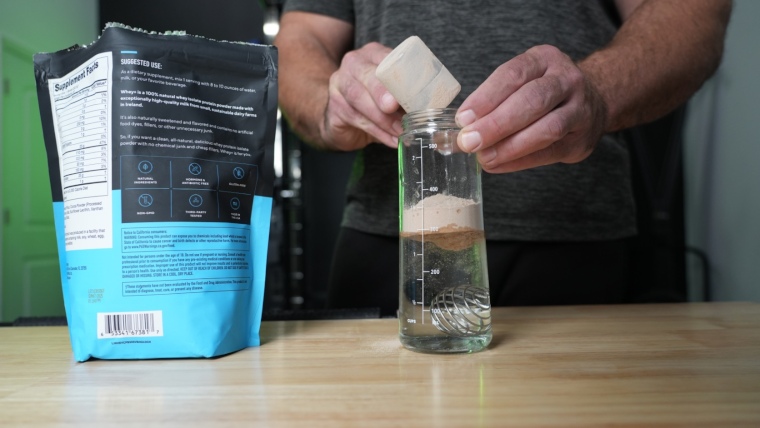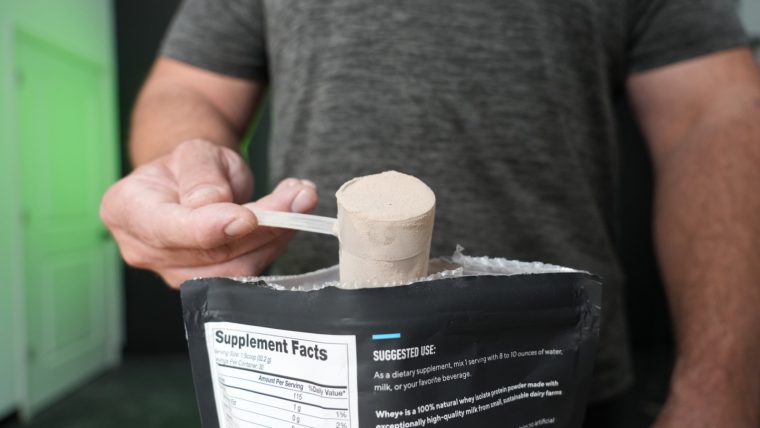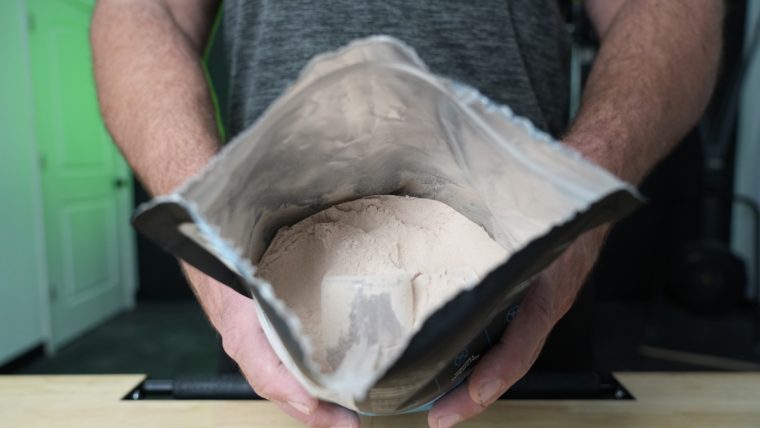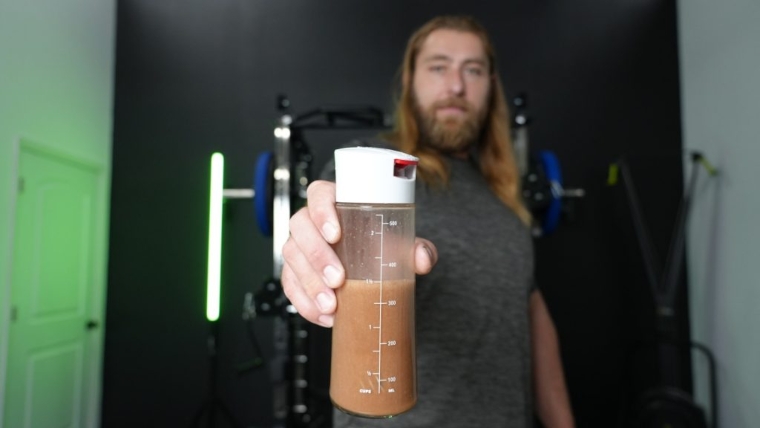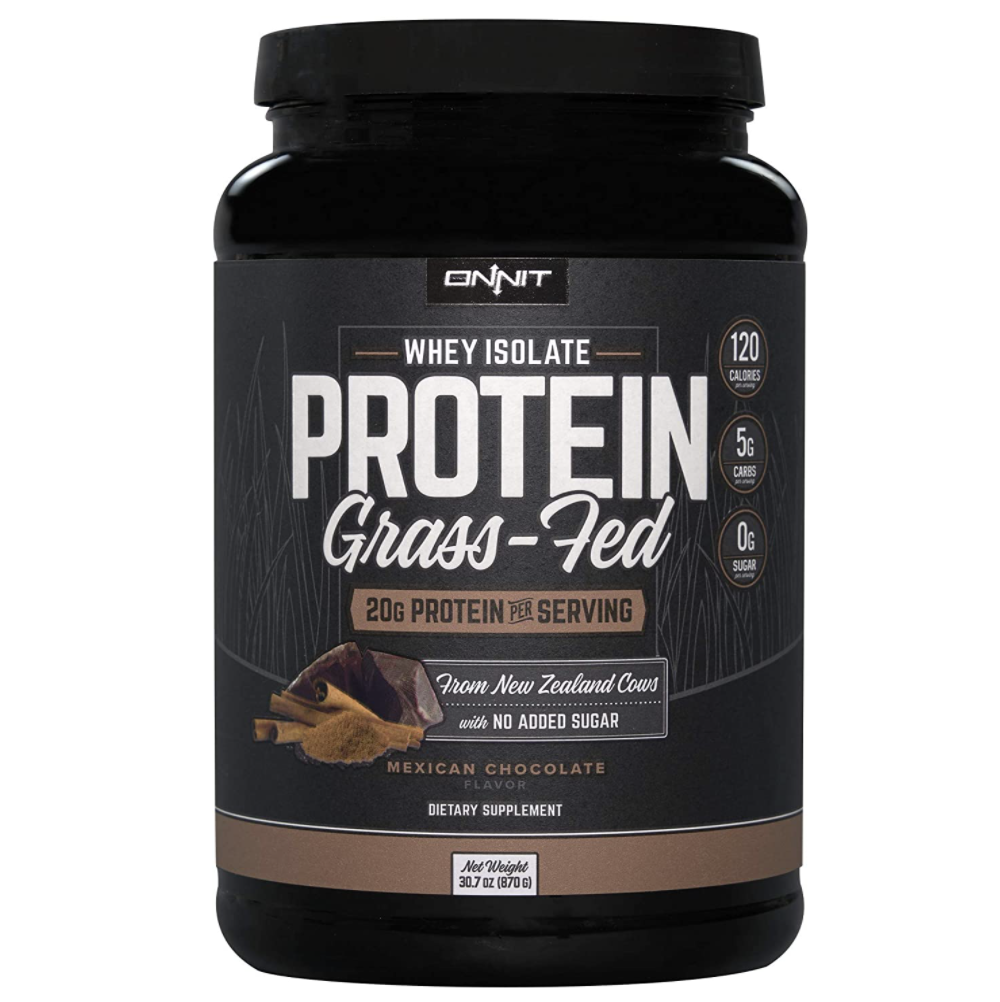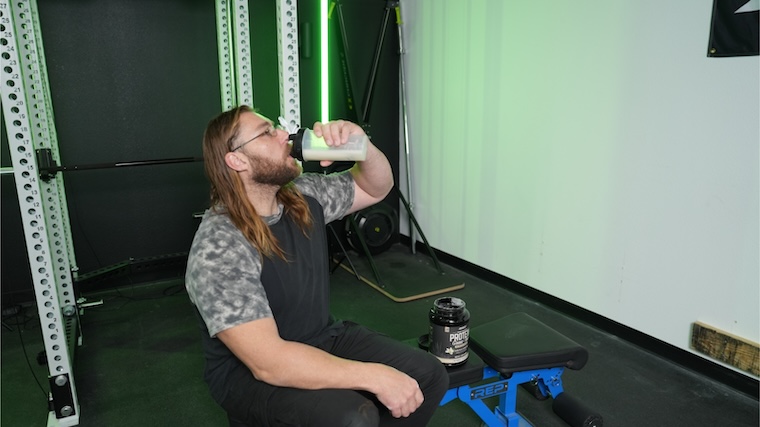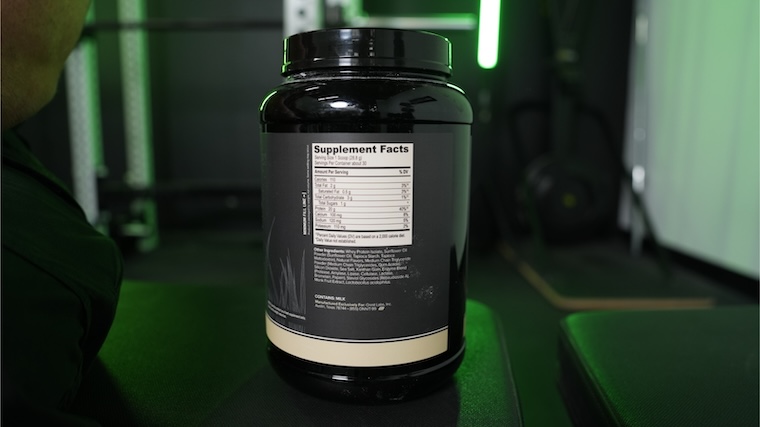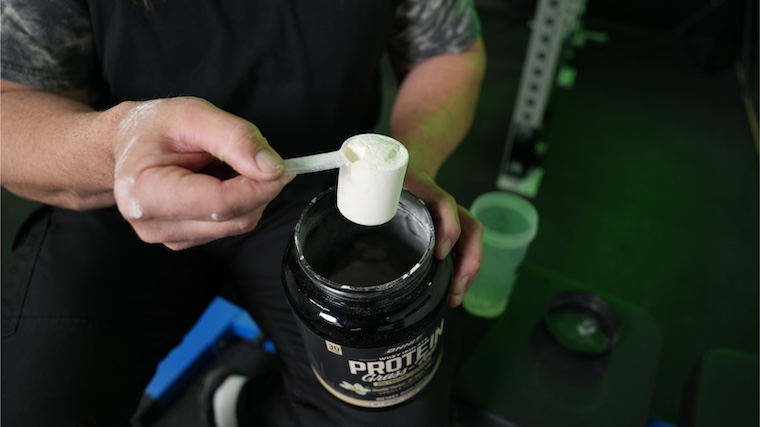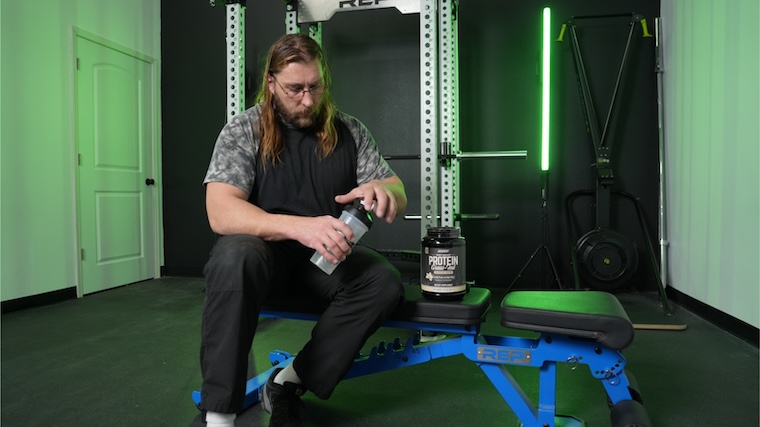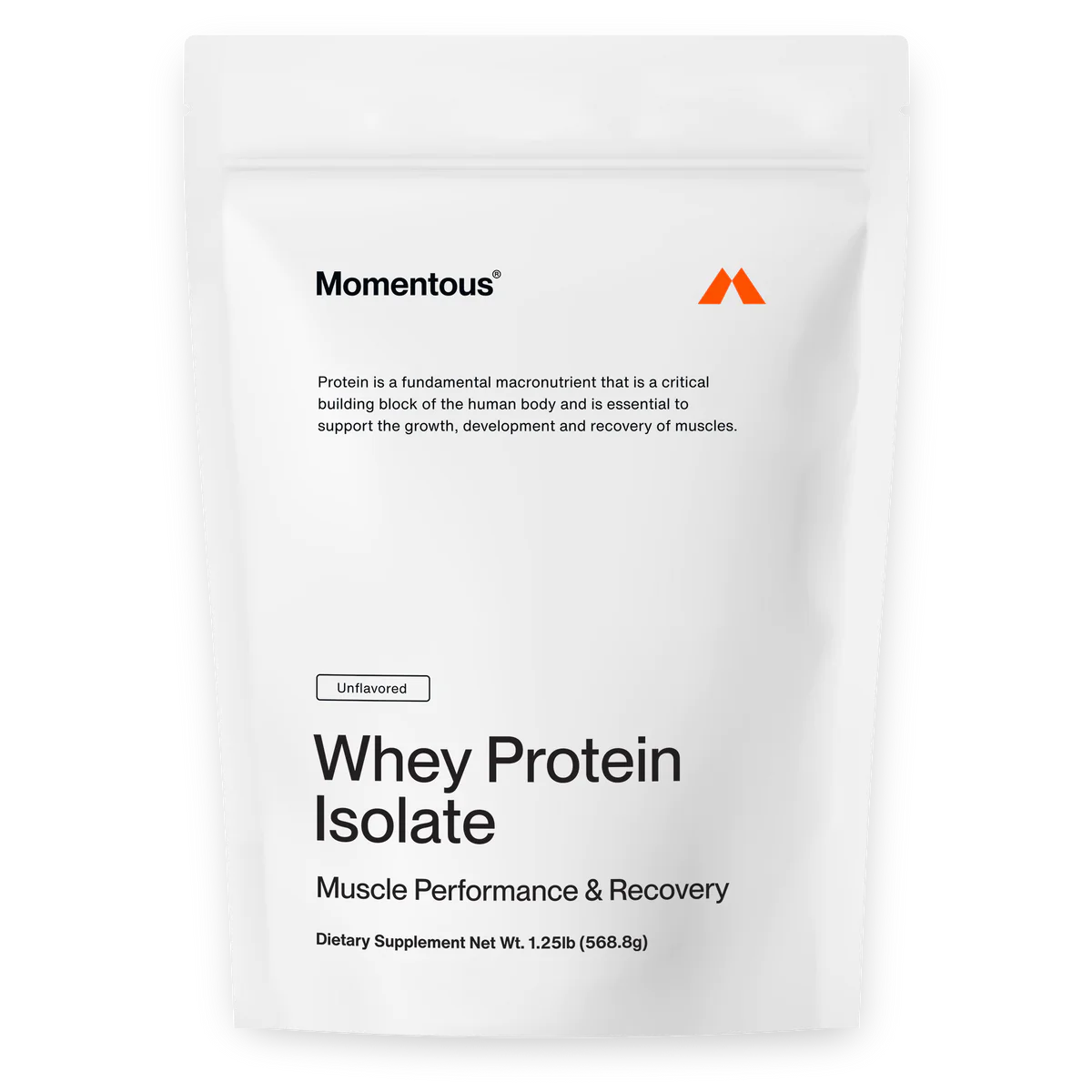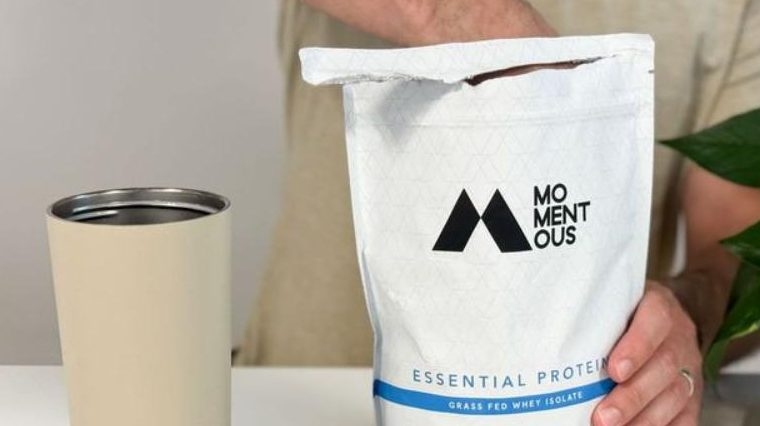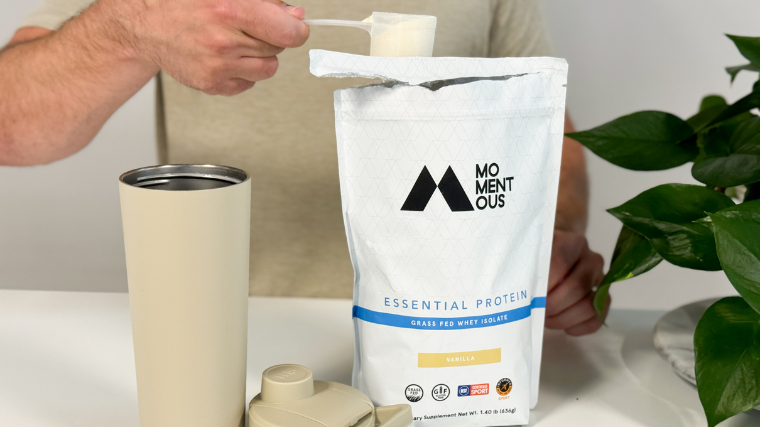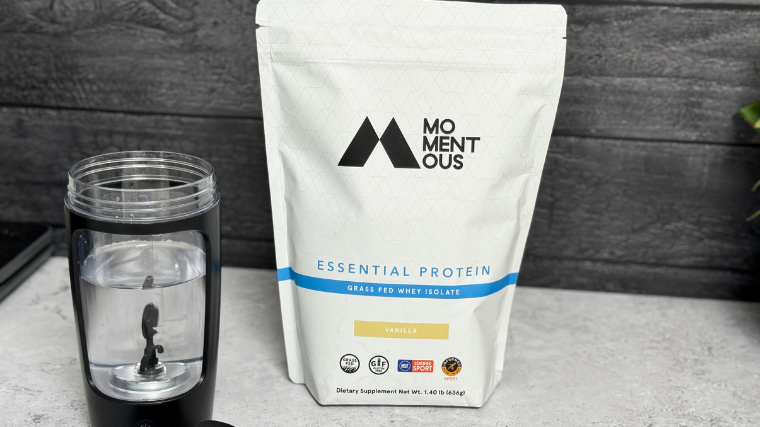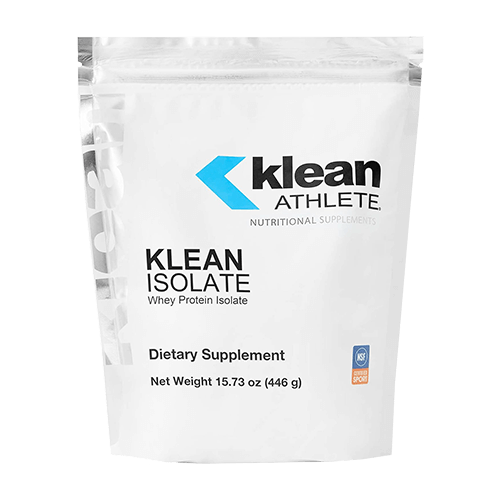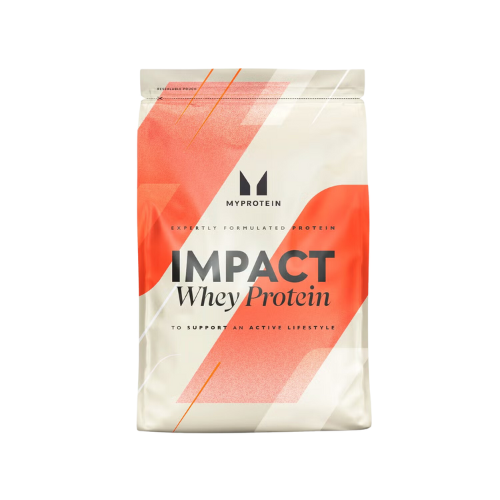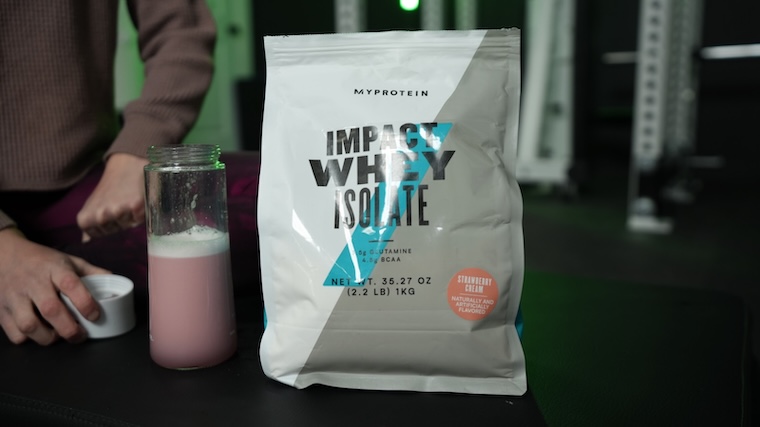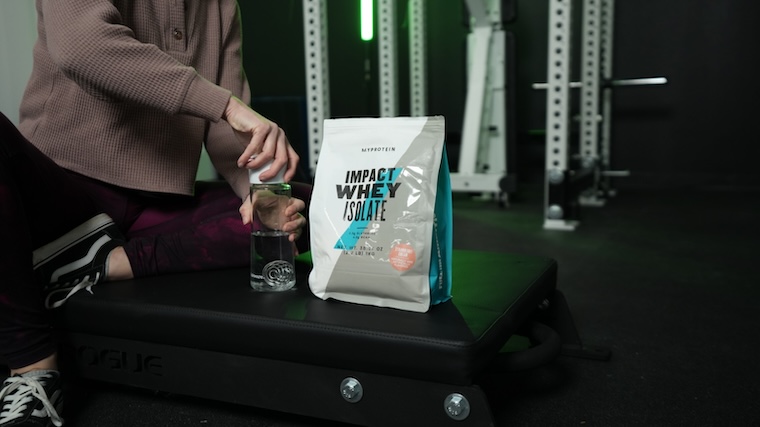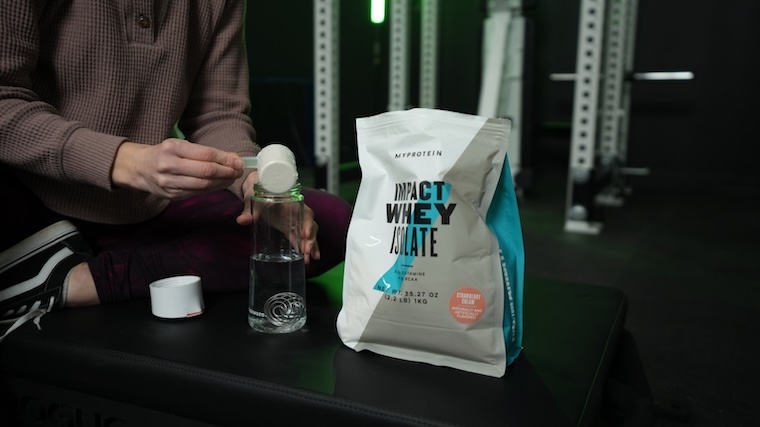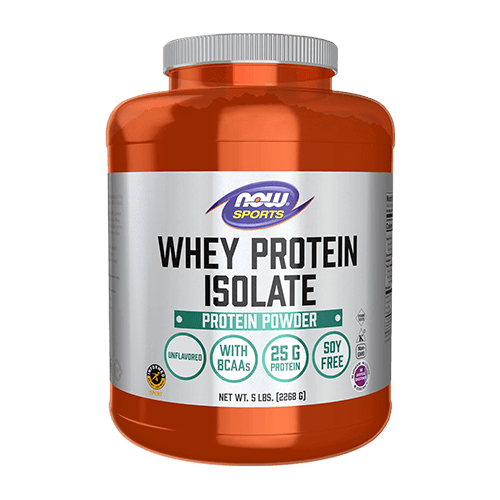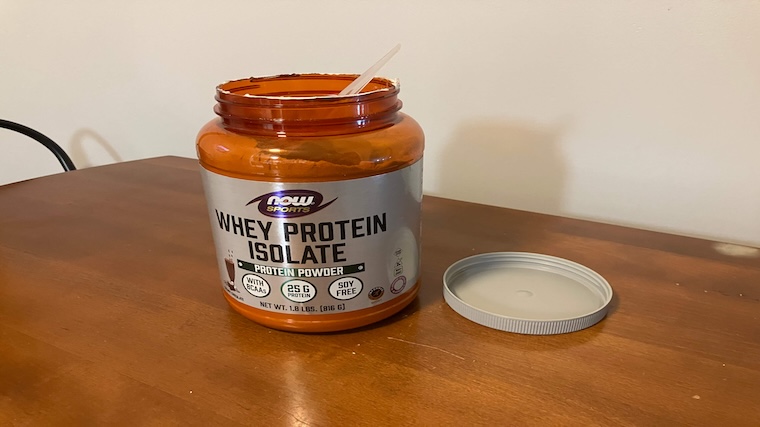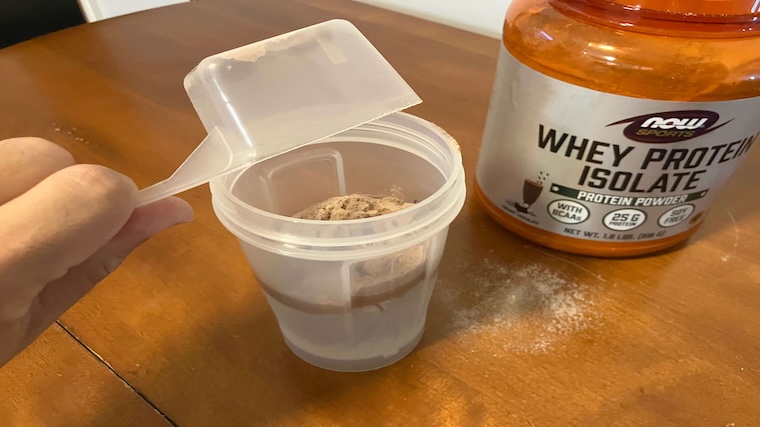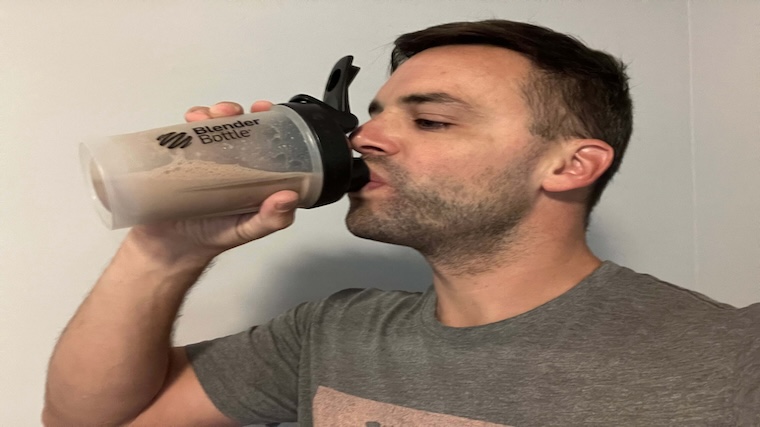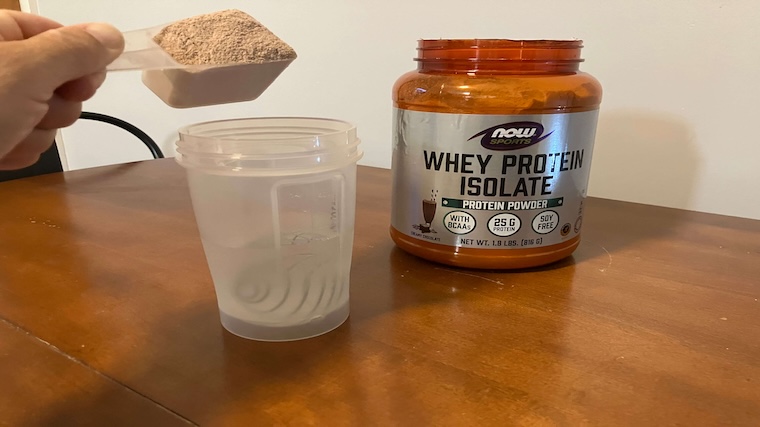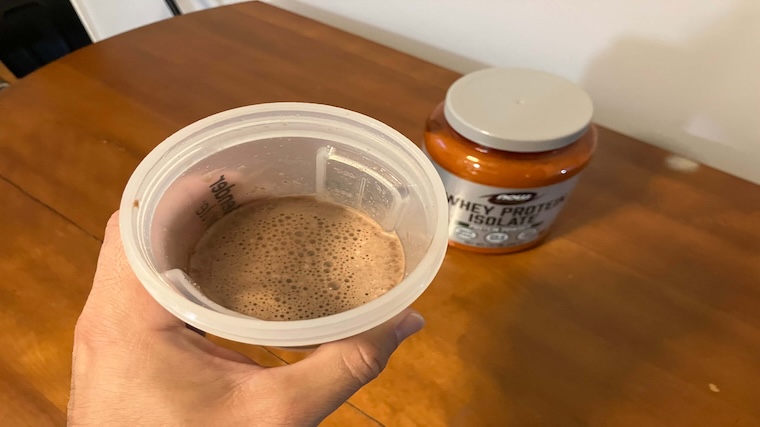If you’re serious about your protein intake, you’re probably already well-versed in shopping the best protein powders. After all, “one of the easiest ways to sneak in more protein is with protein powder, since protein powder can be added to most foods,” notes Dr. Christopher Mohr, PhD, RD. But even if you’re a protein pro, you may be unfamiliar with whey protein isolate. These protein-rich building block supplements often feature a lower count of carbs and fat, making them great for athletes looking to keep their macros in check while also trying to reap the benefits of protein powder, including muscle growth, increased satiety, and more. (1)(2)
For those that have strolled through a vitamin store before, though, you understand that there are almost too many whey isolate protein powders on the market to count. In an effort to make the purchasing process go down smoothly, we’ve put more than 100 protein powders to the test to separate the best whey isolates apart from the crowd, using the unique supplement testing methodology we developed with the help of RDs and other experts. That methodology includes analyzing and rating whey isolates on the following factors:
- Macro Splits: Does the whey isolate feature almost all protein as the main macronutrient, or does the macro split feature fats and carbs more heavily than dietitians recommend?
- Solubility: Does the powder blend smoothly in a standard shaker cup, or are there unwanted clumps to deal with?
- Flavor: Does the whey isolate taste good enough to drink on a regular basis? Are there a variety of flavors to pique our taste buds? If the isolate is unflavored, does it truly taste neutral?
- Third-Party Testing: Does the company enlist third-party labs to analyze contents for heavy metals, pesticides and herbicides, and other impurities? Are there any third-party approval from recognized labs such as NSF, Informed Choice, and Labdoor?
With help from our in-house experts, over 1.6 million athletes have used BarBend‘s recommendations to find the best supplement for their needs. Here are our favorite whey isolate protein powders on the market today.
The Best Whey Isolate Protein Powders of 2026
- Best Whey Isolate Protein Powder Overall: Transparent Labs Grass-Fed Whey Isolate
- Best Whey Isolate on Amazon: Sports Research Whey Isolate
- Best-Tasting Whey Isolate: Jacked Factory Authentic Iso
- Best Natural Whey Isolate: Legion Whey+
- Best Grass-Fed Whey Isolate: Onnit Whey Isolate Protein Powder
- Best Whey Isolate for Muscle Gain: Momentous Whey Protein Isolate
- Best Whey Isolate for Digestion: Klean Athlete Klean Isolate
- Best Whey Isolate for Recovery: MyProtein Impact Whey Isolate
- Best Budget Whey Isolate: NOW Sports Whey Protein Isolate
Editor’s note: The content on BarBend is meant to be informative in nature, but it should not be taken as medical advice. The opinions and articles on this site are not intended for use as diagnosis, prevention, and/or treatment of health problems. It’s always a good idea to talk to your doctor before beginning a new fitness, nutritional, and/or supplement routine.
Best Overall Whey Isolate Protein Powder: Transparent Labs Grass-Fed Whey Isolate
Best Whey Isolate on Amazon: Sports Research Whey Protein Isolate
Best-Tasting Whey Isolate Protein Powder: Jacked Factory Authentic Iso
Best Natural Whey Isolate Protein Powder: Legion Whey+
Best Grass-Fed Whey Isolate Protein Powder: Onnit Whey Isolate Protein Powder
Best Whey Isolate Protein Powder for Muscle Gain: Momentous Whey Protein Isolate
Best Whey Isolate Protein Powder for Digestion: Klean Athlete Klean Isolate
Best Whey Isolate for Recovery: MyProtein Impact Whey Isolate
Best Budget Whey Isolate: NOW Sports Whey Protein Isolate
Other Whey Isolates We’ve Tested
We’re kind of the experts on protein powders, and we’ve tested over a hundred whey isolates over the years. Not every product is a home run or worthy of a place on our list, but we still thought it’d be valuable to share a few extra options that made an impression on our testers:
- Nutricost Whey Protein Isolate Powder: Our tester loved the mixability and taste of this wallet-friendly whey isolate, especially considering the 30g of protein per serving. However, we thought there was room for improvement with third-party testing.
- XWerks Grow Whey Protein Isolate: While the product mixed exceptionally well, remaining smooth after 15 minutes of rest, we thought the vanilla flavor was a little too artificially sweet.
- Thorne Whey Protein Isolate: During our test process, we noted that the Thorne product mixed well without leaving chunks or residue, though some sediment was noticeable at the bottom after a short rest period. While the Whey Protein Isolate tasted okay with milk, the water mixture had an unpleasant aftertaste.
How We Tested and Chose the Best Whey Isolate Protein Powders
The BarBend team is made up of competitive athletes, certified personal trainers, and lifelong fitness enthusiasts. To determine the best whey isolate protein powders available today, we’ve tested nearly 100 different profiles from the industry’s best brands, using our supplement testing methodology to rate each profile on a scale of 1 (lowest) to 5 (highest). Below are some of the categories and components that played into our rankings.
- Macro Splits: All the best protein powders heavily favor protein as the primary macronutrient, as opposed to fat or carbs. “When choosing a whey protein, pay close attention to the macro split,” says Dr. Jennie Stanford, MD, FAAFP, DipABOM. “You want a version that is almost all, if not completely all, protein. After all, protein is what you are after, not fat and carbs.”
- Solubility: Mixing up your best protein shake shouldn’t be as taxing as mixing up a batch of concrete, nor should leave you with a shaker bottle with leftover powder. We prioritized whey isolate products that blended seamlessly in both your standard shaker cup, as well as a countertop blender. We examined how seamlessly each powder blended into our chosen liquids, as well as if there were any unwanted clumps or grittiness present within the final product.
- Digestibility: Whey isolate is the best animal-based protein powder option for those with lactose sensitivities. These powders are so refined that they’re nearly devoid of lactose, though those who are extremely sensitive may still prefer to avoid them.
- Quality Control and Third-Party Testing: Many of the companies in this list perform ongoing trials to analyze contents for heavy metals, pesticides and herbicides, and other impurities, so you won’t have to worry about quality control when you grab one of these supplements off the shelf. Additionally, we focused on whey protein isolates that carry third-party approval from recognized labs such as NSF, Informed Choice, and Labdoor. These stamps of approval can be a quick way to identify a whey isolate that’s free of banned substances.
- Flavors: We like variety, so we tried to include powders that have several flavor options available. Each of the picks on this list has a variety of flavors.
What Are Whey Isolates?
In short, whey isolate is traditional whey protein that has been further processed to remove almost all of the fat and lactose content from the end product. This makes it lower in calories and potentially easier to digest for people with lactose sensitivities. This refinement often comes at a cost — literally — as whey isolate protein powders are typically a bit more expensive than whey concentrate products.
Benefits of Whey Isolate Protein Powder
While there are plenty of potential health benefits of protein powders, whey isolate benefits stand out from the pack. The thorough refining process takes more carbohydrates and fats out of the product, providing a supplement that is more pure protein. Whey isolates are meant as a supplement to help increase protein intake to hit macronutrient goals, aid in recovery and growth, or potentially aid in decreased snacking or fat loss. (6)
Editor’s Note: If you have any pre-existing conditions or dietary restrictions, it’s best to consult your doctor or a registered dietitian to confirm whey isolate is okay for your body. Below are some other perks associated with whey isolate protein powders.
- Muscle Recovery: Whey protein supplementation has been shown to improve muscle protein synthesis (the repair of muscles after being broken down during exercise). (1) Whey isolate may be better at helping jumpstart muscle recovery after a hard workout than some other protein sources, including whey concentrate and plant-based protein powders. (5)
- Increased Satiety: “Protein powder can contribute to weight loss since it makes many individuals feel full and causes them to eat fewer calories,” says Dr. Raj Dasgupta, MD, FACP, FCCP, FAASM. Studies have consistently shown that high-protein diets can increase satiety and assist with weight loss. (2)(8) A scoop of whey isolate is an easy way to boost your satiety. However, it’s worth noting that whey isolates likely cannot keep you satiated enough to be a full meal substitute. We recommend opting for one of the best meal replacements if that is your main goal with protein supplementation.
- Fast Absorption: Since whey isolate protein powder is so low in fat and carbs, the body can potentially absorb and digest it more quickly than it would a whey concentrate powder or mass gainer. This makes whey isolate protein shakes a great option for a quick post-workout supplement, while a slower-digesting casein protein shake may be better suited for consumption before bed. Evidence suggests that the body digests around 10 grams of whey protein per hour, though whey isolate could be absorbed even quicker. (12)
- Generally Lower Calories: With little to no carbs or fats, whey isolate protein powder contains far fewer calories, with some brands coming in as low as 100 to 110 calories per serving. Whey concentrate typically contains around 120 calories per serving, although this can vary by brand. In general, whey isolate is the way to go if you’re trying to keep a short leash on your daily calorie intake.
How to Choose Whey Protein Isolate Powders
Whey protein comes in various forms. The most popular kinds of whey you’ll find on the market are concentrate, isolate, and hydrolysate. There are also plant-based proteins and vegan proteins, but we didn’t consider them for this because the list only consists of milk-derived whey isolates.
While the type is a consideration (more on that below), you’ll also want to think about price, along with flavor availability. Other things to keep on your radar when considering a whey isolate is the macro split and the digestibility of the protein supplement you’re purchasing.
Price
Whey isolate is (typically) more expensive than whey concentrate. Isolate is more refined and goes through additional processing to give it a higher percentage of protein per serving with fewer carbs and fats. The higher protein concentration and added manufacturing steps are likely what increases the price.
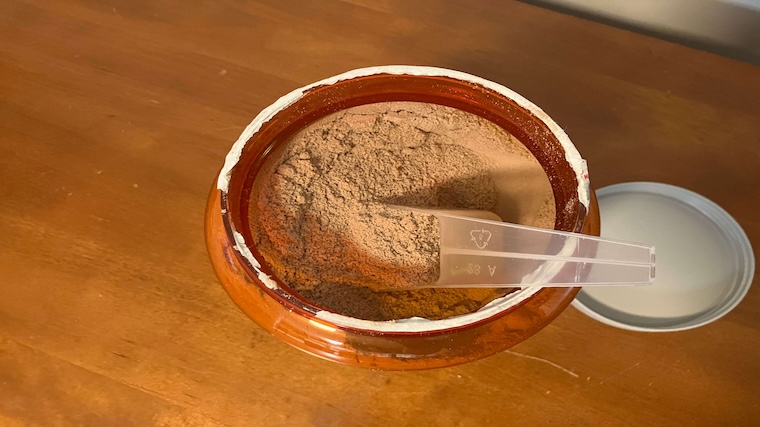
Generally, whey isolates range from $40 to $80 per tub, depending on other factors such as added digestive enzymes, probiotics, specialty diet formulas, and other variables. If you’re not looking to drop that much on protein powder, you’re better off opting for a less expensive formula, like a whey concentrate.
Flavor Availability
Most protein powders on the market will come in some form of chocolate and vanilla flavors, though some companies may make it sound more exciting with names like “Dutch Chocolate” or “French Vanilla Ice Cream.” Things have come a long way in the past decade with many proteins now available in fruit flavors, too — a common occurrence with the best clear protein drinks. Essentially, if you can dream it, there’s likely a protein flavor of it somewhere out there.
Editor’s Tip: Mix whey isolate with cold water for best taste. Hot liquids may clump the powder.
Macro Splits and Digestibility
The macro split of a protein isolate and its digestibility go hand in hand. (11) “In general, some people, like those with kidney problems, allergies to dairy or soy, or sensitive stomachs, should be careful with protein powder,” notes Dr. Raj Dasgupta, MD, FACP, FCCP, FAASM. But thanks to the further refinement and removal of most lactose in whey isolate, it may be more easily digested and ideal for people with lactose intolerance or sensitivity. Whey isolates typically have fewer carbs and fats in the way to slow down the digestive process, which may contribute to the quicker absorption and digestion that whey isolates are known for. (9)
Macro splits on whey isolates are usually very lean and (sometimes) even keto diet-friendly with low fat and low carbs (generally less than 2 grams of fat and less than 5 grams of carbs in whey protein isolates).
Some whey isolate formulas even come with digestive enzymes to help digestibility even more. If macros and better digestion are two factors you’re concerned with, a whey isolate is likely for you. But for optimal digestion, be sure you’re leaning toward those formulas with digestive enzymes, even though the isolate should be fairly easy for the body to digest on its own.
Types of Whey Isolate Protein Powders
When it comes to different types of protein, there are three options when it comes to whey. Below, we’ll outline whey concentrate versus isolate versus hydrolysate.
Whey Concentrate
Whey concentrate is the more basic, less concentrated form of whey protein. It’s only up to 80% protein by weight, with the rest of the product being fat and carbs. Since whey concentrate is less concentrated and not filtered, it’s also cheaper than whey isolate and whey hydrolysate (which is the most expensive).
Whey concentrate is typically higher in calories and better for those who want to gain weight, while isolate and hydrolysate are trimmed down in fat and carbs (as well as lactose and sugar) for those who are more conscious of those macros or those seeking the best low-carb protein powders. And if digestion is of particular concern, whey hydrolysate allows for optimal processing and absorption — more so than either concentrate or isolate.
Even though hydrolysate and isolate are leaner versions of whey, that doesn’t mean they aren’t good for muscle building and bulking up. Since whey isolate and hydrolysate both have a higher concentration of protein, they do contain more grams of protein per scoop, and can also be used for building lean muscle mass.
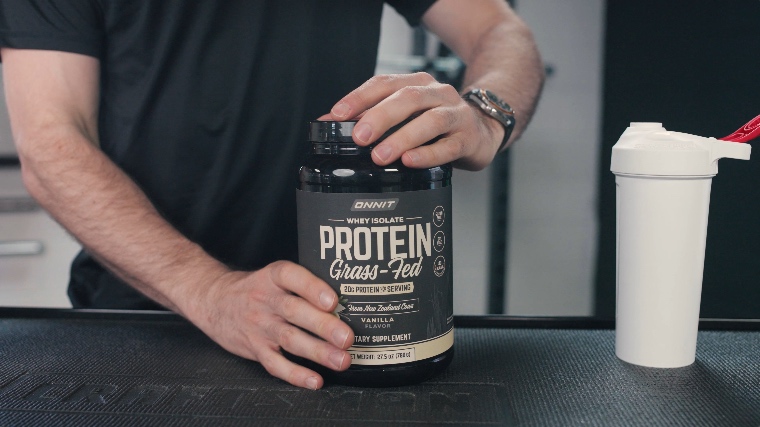
Hydrolyzed Whey Isolate
Whey hydrolysate is the most processed — to the point where it may be called “pre-digested” — as the enzymes that break it down have already done part of the digestion for you. Like whey isolate, it contains around 90% protein by weight and very few fats or carbs, but since it’s already broken down, it’s absorbed faster than isolate or concentrate. It’s also more expensive than both of those.
Pure Isolate
Similarly, whey isolate is processed — though a little less so than hydrolysate — and contains the same 90% protein by weight and little to no carbs or fat. While it may not be absorbed as fast as hydrolysate, it’s more affordable and considered by many to be the best bang for your buck.
Whey Isolate vs. Concentrate or Blends
If you’re trying to choose between different types of whey protein — whey isolate vs. whey concentrate or blends — there are a few key differences to be aware of, especially regarding macronutrient split and digestion.
Whey isolate and hydrolysate both contain around 90% protein by weight, with minimal amounts of fats and carbs. These types of protein are ideal for athletes focused on their macro splits and lasered in on lean muscle gain as a goal. Whey concentrate, meanwhile, is often higher in calories, with up to 80% protein by weight and the rest coming from fat and carbs. It’s probably a better choice for those trying to gain weight.
Digestion-wise, hydrolysate is the most processed option and is designed for rapid absorption. Whey isolate is slightly less processed but still offers a high protein concentration that’s easy to digest. Blends may combine multiple different types of protein, which may mean you compromise on price, digestion speed, and protein content.
According to one study, it’s estimated that the human body can absorb and digest around 10 grams of whey protein per hour. (12) So, for example, a serving of 25 grams of whey protein concentrate could be digested in around two and a half hours. With the refined nature of whey isolate and hydrolysate, it’s likely an even faster process.
Bottom line: Whey isolate is a lean, efficient option that performs well at a reasonable cost, while concentrate is more budget-friendly but less refined. Meanwhile, hydrolysate offers the fastest absorption of all at a high price point.
| Protein Type | Whey Concentrate | Whey Isolate | Whey Hydrolysate |
| Fats | 3-4 grams | 0-3 grams | 0-3 grams |
| Carbs | 3-4 grams | 0-3 grams | 0-3 grams |
| Protein | Up to 80% | ~90% | ~90% |
Note: These are general ranges, but the actual amounts vary from brand to brand and even flavor to flavor.
How Much Do Whey Isolate Protein Powders Cost?
Whey protein supplements can range in cost, with whey isolates being generally pricier than their whey concentrate counterparts. That’s likely due to the additional refinement and manufacturing efforts that go into purifying the protein and removing extra carbs and fats. (10) Here’s a price comparison of our favorite products:
| Best For | Product | Protein Per Serving | Flavor Options | Price Per Serving |
| Best Overall Whey Isolate Protein Powder | Transparent Labs Grass-Fed Whey Isolate | 28g | Milk Chocolate, French Vanilla, Chocolate Peanut Butter, Oatmeal Chocolate Chip Cookie, Unflavored, Dark Chocolate, Chocolate Coconut, Strawberry Milkshake, Cinnamon French Toast, Mocha, Blueberry Pancakes, Vanilla Peanut Butter, Chocolate Chip Banana Bread, Mint Chocolate Chip | Starting at $1.82 |
| Best Whey Isolate on Amazon | Sports Research Whey Protein Isolate | 25g | Creamy Vanilla, Dutch Chocolate | Starting at $1.27 |
| Best-Tasting Whey Isolate Protein Powder | Jacked Factory Authentic Iso | Up to 27g | Vanilla Oatmeal Cookie, Cookies & Cream, Vanilla, Milk Chocolate, Chocolate Peanut Butter, Unflavored, Peanut Butter | $1.33 |
| Best Natural Whey Isolate Protein Powder | Legion Whey+ | Up to 23g | Dutch Chocolate, French Vanilla, Cinnamon Cereal, Chocolate Peanut Butter, Salted Caramel, S’mores, Oatmeal Cream Pie, Peanut Butter Fudge, Coconut Cream, Cookies & Cream, Birthday Cake, Chocolate Hazelnut, Unflavored, Mint Chocolate, Banana Bread, Mocha Cappuccino, Strawberry Banana, Cocoa Cereal, Fruity Cereal, Pumpkin Pie, Apple Pie, Honey Cereal | Starting at $1.54 |
| Best Grass-Fed Whey Isolate Protein Powder | Onnit Whey Isolate Protein Powder | 20g | Vanilla, Mexican Chocolate | $1.80 |
| Best Whey Isolate Protein Powder for Muscle Gain | Momentous Whey Protein Isolate | Up to 23.4g | Unflavored, Vanilla, Chocolate | $2.20 |
| Best Whey Isolate Protein Powder for Digestion | Klean Athlete Klean Isolate | 20g | Unflavored | $2.98 |
| Best Whey Isolate for Recovery | MyProtein Impact Whey Isolate | 22g | Birthday Cake, Chocolate Brownie, Chocolate Milkshake, Chocolate Mint, Cinnamon Cereal, Cookies & Cream, Fruity Cereal, Gingerbread, Marshmallow Cereal, Matcha, Mocha, Pumpkin Spice, Salted Caramel, Southern Comfort Southern Milkshake, Strawberry Milkshake, Unflavored, Vanilla Ice Cream | Starting at $1.69 |
| Best Budget Whey Isolate | NOW Sports Whey Protein Isolate | 25g | Creamy Chocolate, Unflavored, Vanilla | Starting at $1.23 |
Best Whey Isolates FAQs
What is the best whey isolate?
The best whey isolate will depend on a few factors, including goals, your needs, your flavor preferences, or your budget. With that being said, we think Transparent Labs Whey Protein Isolate is a top-tier choice, as it has a high calorie-to-protein ratio, comes in a variety of unique flavor options, and is made from a high-quality protein source.
How much do whey isolates cost?
They’re generally more expensive than whey concentrates at around $1.76 per serving. If you’re looking to cut back on fat and carbs, we think the added cost is worth it. You’re not going to find a whey concentrate option with as little fat and carbs as whey isolates have. However, if that isn’t a priority to you, spending more money on whey isolate will not be worth your while.
How does whey isolate differ from whey concentrate?
When comparing whey isolate versus concentrate, you’re essentially speaking to how much refinement the protein undergoes during manufacturing. Whey isolates undergo further filtration steps to remove excess lactose, resulting in a more protein-dense formulation with fewer carbs and fats. Whey concentrate sees the fewest filtration during manufacturing, resulting in an end product with higher calories with an albeit lower cost per serving.
Does whey isolate contain lactose?
Yes, it does, but only about 1 gram. Whey concentrate contains around 3 grams, but neither of these numbers are typically enough to affect someone with lactose intolerance.
References
- Hulmi, J.J., Lockwood, C.M. & Stout, J.R. Effect of protein/essential amino acids and resistance training on skeletal muscle hypertrophy: A case for whey protein. Nutr Metab (Lond) 7, 51 (2010). https://doi.org/10.1186/1743-7075-7-51
- Veldhorst, M. A., Nieuwenhuizen, A. G., Hochstenbach-Waelen, A., van Vught, A. J., Westerterp, K. R., Engelen, M. P., Brummer, R. J., Deutz, N. E., & Westerterp-Plantenga, M. S. (2009). Dose-dependent satiating effect of whey relative to casein or soy. Physiology & behavior, 96(4-5), 675–682. https://doi.org/10.1016/j.physbeh.2009.01.004
- Church, D. D., Hirsch, K. R., Park, S., Kim, I. Y., Gwin, J. A., Pasiakos, S. M., Wolfe, R. R., & Ferrando, A. A. (2020). Essential Amino Acids and Protein Synthesis: Insights into Maximizing the Muscle and Whole-Body Response to Feeding. Nutrients, 12(12), 3717. https://doi.org/10.3390/nu12123717
- Blomstrand E, Eliasson J, Karlsson HK, Köhnke R. Branched-chain amino acids activate key enzymes in protein synthesis after physical exercise. J Nutr. 2006;136(1 Suppl):269S-73S. https://doi:10.1093/jn/136.1.269S
- Vliet, S. V., Beals, J. W., Martinez, I. G., Skinner, S. K., & Burd, N. A. (2018). Achieving Optimal Post-Exercise Muscle Protein Remodeling in Physically Active Adults through Whole Food Consumption. Nutrients, 10(2), 224. https://doi.org/10.3390/nu10020224
- West, D. W. D., Abou Sawan, S., Mazzulla, M., Williamson, E., & Moore, D. R. (2017). Whey Protein Supplementation Enhances Whole Body Protein Metabolism and Performance Recovery after Resistance Exercise: A Double-Blind Crossover Study. Nutrients, 9(7), 735. https://doi.org/10.3390/nu9070735
- A Castro LH, S de Araújo FH, M Olimpio MY, et al. Comparative Meta-Analysis of the Effect of Concentrated, Hydrolyzed, and Isolated Whey Protein Supplementation on Body Composition of Physical Activity Practitioners. Nutrients. 2019;11(9):2047. https://doi:10.3390/nu11092047
- Moon J, Koh G. Clinical Evidence and Mechanisms of High-Protein Diet-Induced Weight Loss. J Obes Metab Syndr. 2020;29(3):166-173. https://doi:10.7570/jomes20028
- Bendtsen, L. Q., Lorenzen, J. K., Bendsen, N. T., Rasmussen, C., & Astrup, A. (2013). Effect of dairy proteins on appetite, energy expenditure, body weight, and composition: a review of the evidence from controlled clinical trials. Advances in nutrition (Bethesda, Md.), 4(4), 418–438. https://doi.org/10.3945/an.113.003723
- Morr CV, Ha EY. Whey protein concentrates and isolates: processing and functional properties. Crit Rev Food Sci Nutr. 1993;33(6):431-476. https://doi.org/10.1080/10408399309527643
- Capuano E, Janssen AEM. Food Matrix and Macronutrient Digestion. Annu Rev Food Sci Technol. 2021;12:193-212. https://doi:10.1146/annurev-food-032519-051646
- Schoenfeld BJ, Aragon AA. How much protein can the body use in a single meal for muscle-building? Implications for daily protein distribution. J Int Soc Sports Nutr. 2018 Feb 27;15:10. doi: 10.1186/s12970-018-0215-1. PMID: 29497353; PMCID: PMC5828430.
